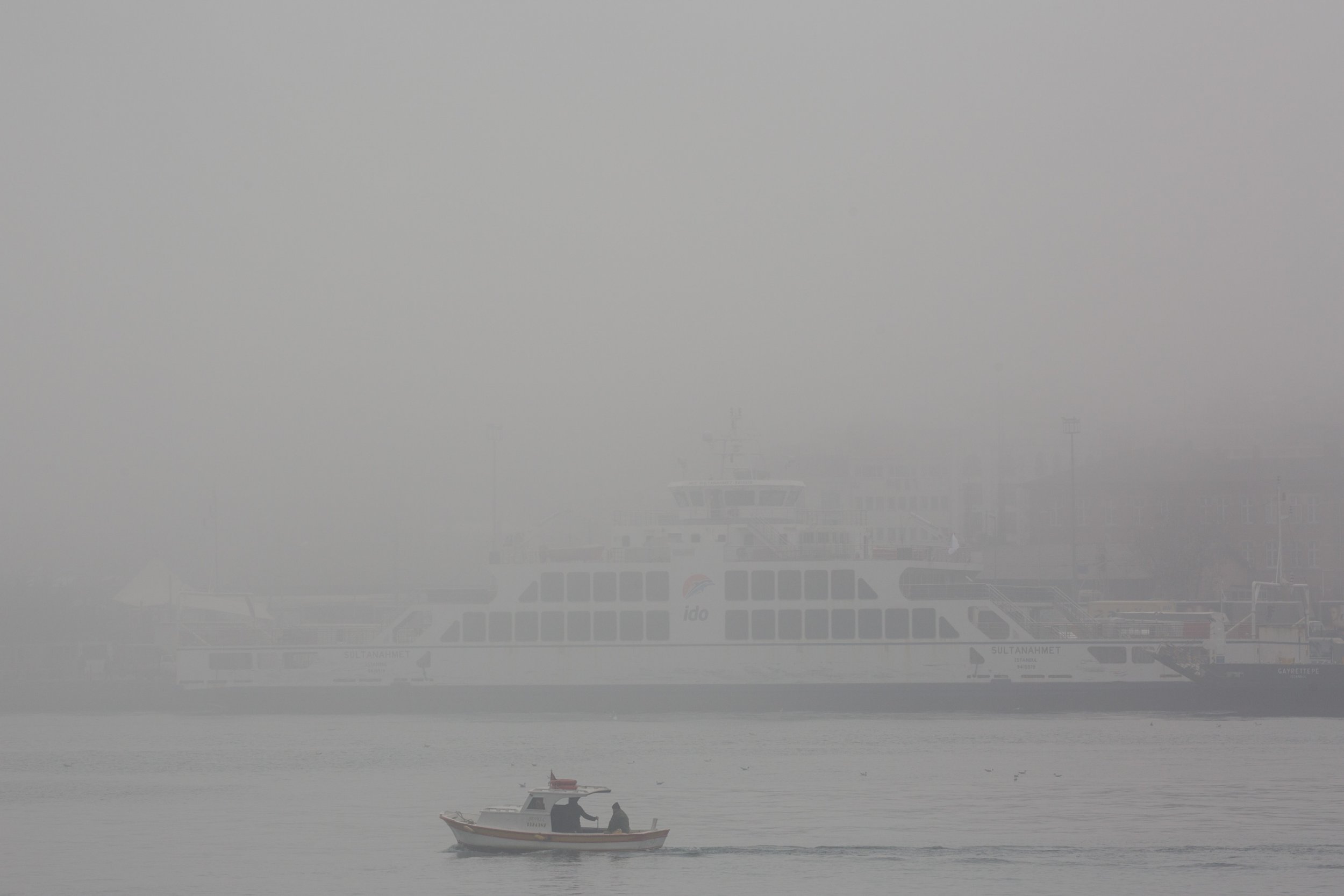
Freezing temperatures in the Deep South have caused a layer of steam to form over the Gulf of Mexico's 64-degree waters.
The weather phenomenon, which meteorologists refer to as "sea smoke," happens when Arctic air moves over warmer bodies of water. When the hot and cold meet, it causes a layer of fog that rises over the surface. It's also called "frost smoke" or "steam fog."
Related: It's so cold in the U.S. temperatures will set new historic lows
Although it occurs often, the latest incident was unique because sea smoke rarely happens over the Gulf of Mexico, according to The Washington Post. Many people took to social media to post photos and videos of the unusual instance.
Mike Seidel, a meteorologist and field reporter for The Weather Channel, shared a video on Twitter of the smoke at Pensacola Beach, Florida, explaining that: "It has to get real cold to see this: 22° air flowing over 64° gulf water this AM will do it ..... and the wind chill was 8°. Even some sleet/snow fell overnight."
Arctic Sea Smoke from Pensacola Beach, FLORIDA! It has to get real cold to see this: 22° air flowing over 64° gulf water this AM will do it ..... and the wind chill was 8°. Even some sleet/snow fell overnight. Video from @davidliberatore #FLwx pic.twitter.com/n1yhGRT3yz
— Mike Seidel (@mikeseidel) January 17, 2018
Others in the Pensacola area also took advantage of the opportunity to capture the event.
Wow! Beth Pouncey sharing this video of the sea smoke from Pensacola Beach! @StormHour pic.twitter.com/52ZHvd7vLN
— Kaitlin Wright (@wxkaitlin) January 17, 2018
WOW! Arctic Sea Smoke over the gulf at Pensacola Beach! Definitiely something we don't see everyday!https://t.co/esPS9CyA5F pic.twitter.com/Lymv2td6Gz
— Dustin Williams (@DWPhotographed) January 18, 2018
Related: What does cold weather do to the human body? Low temperatures can cause skin blistering and slurred speech
Sea smoke can happen above smaller bodies of water, such as lakes. A video tweeted by Jill Gilardi, a WBRC meteorologist in Birmingham, Alabama, shows the steam rising above Lake Wedowee, located in the northeast part of the state.
If you live by a lake then you might have seen this phenomenon like at Lake Wedowee. This is steam fog, otherwise known as sea smoke or frost smoke, which is formed when very cold air moves over warmer water. pic.twitter.com/1y0RUnIaYE
— Jill Gilardi ☀️☔️⚡️ (@jillgilardi) January 18, 2018
The South's steam fog doesn't come as too much of a surprise, considering many southern regions have been experiencing record-breaking temperatures this winter.
On Wednesday, residents of North Texas experienced the coldest temperatures since 2011. WFAA, an ABC-affiliate in Dallas, reported it was below 20 degrees in at least eight Texas cities. Fortunately for some Texans, it's expected to be in the 70s this weekend in parts of the state.
Uncommon Knowledge
Newsweek is committed to challenging conventional wisdom and finding connections in the search for common ground.
Newsweek is committed to challenging conventional wisdom and finding connections in the search for common ground.
About the writer
To read how Newsweek uses AI as a newsroom tool, Click here.








